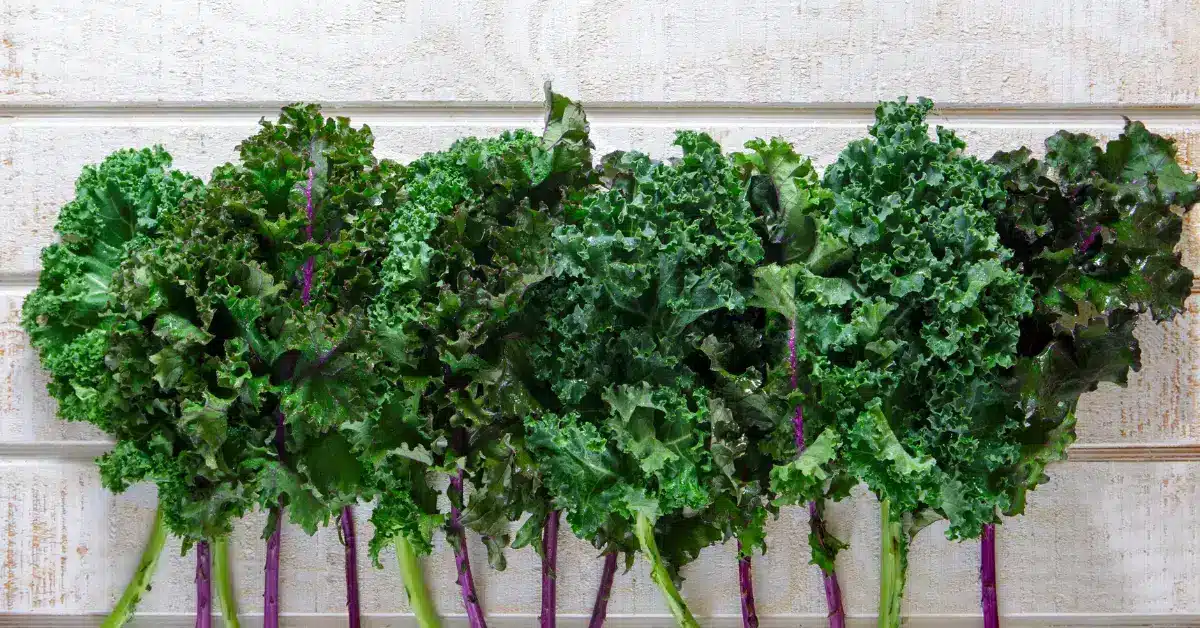Is Kale Good for Eyes: The Superfood Benefits
In our pursuit of clear vision, we often look for foods that offer the best nourishment for eye health.
Among the many competitors, Kale proves itself to be a superfood, packed with several nutrients.
These nutrients are essential for eye health and also prevent eye changes due to aging.
But what about kale makes it so intriguing for eye health?
In this article, we will discuss the nutrients in Kale and how they help to maintain our ocular well-being.
How does Kale work for the improvement of vision?
Kale works for eye improvement by providing the antioxidants lutein and Zeaxanthin, which prevent eyes from oxidative stress.
These help protect eye tissues from UV ray damage and reduce the risk of eye disorders related to aging.
Kale also contains vitamins C, E, beta-carotene, and zinc, which affect eye health.
The kale nutrients help keep the retina healthy, the part of the eye that allows us to perceive light, colors, and shadows.
Therefore, consuming kale can help to protect and improve eye health.
Nutrients in Kale that improve vision

Kale is a vision-boosting superfood with many nutrients that work together to prevent eye-related disorders.
The nutrients in Kale are as follows,
Lutein
Lutein belongs to the carotene family of antioxidants that benefit ocular health.
The antioxidants are found in the eye’s retina and benefit your eyes in many ways.
It suppresses inflammation, reduces oxidative stress, enhances vision sharpness, and protects your eyes from UV ray damage.
Lutein also reduces cell death and aids in converting light signals from the retina to the brain.
Zeaxanthin
Zeaxanthin is also a carotenoid found in the retina of the eye.
It acts as an antioxidant to protect eye cells from damage and eventually contributes to eye health.
Zeaxanthin builds a yellow-colored pigment shield to protect the eyes from UV damage.
Zeaxanthin makes its way inside the body to the lens, where the Macula (part of the eye where most sharp images are produced) enhances clear vision.
Vitamin C
The concentration of Vitamin C reduces in the eye as we age; consuming Kale can counteract this.
Vitamin C works against the oxidative damage of the cells, preventing the UV ray effect on the eyes.
It also helps to prevent nuclear cataract development and reduces the risk of Cataract progression.
Zinc
Zinc is an essential mineral for eye health; its deficiency can cause night blindness.
Working along with antioxidants Lutein and Zeaxanthin can slow the progression of Age-related macular degeneration.
In a study published in Arch Ophthalmol, older adults with early macular degeneration were given zinc supplements.
It was concluded that their macular deterioration slowed, and they maintained their visual sharpness better than those who received a placebo.
Vitamin E
It is an antioxidant that protects your eye cells from damage by free radicals.
A study by Age-Related Eye Disease Study (AREDS) showed that vitamin E and other nutrients helped some people with AMD.
It reduced the risk of developing age-related macular degeneration by 25% in those with early signs of macular degeneration.
Vitamin A
Kale contains beta-carotene that converts into vitamin A in the human body to maintain eye health.
Vitamin A is needed to convert the light that hits your eye into an electrical signal that can be sent to your brain.
One of the first symptoms of Vitamin A deficiency can be night blindness, known as Nyctalopia.
Kale provides adequate amounts of vitamin A that may help slow the age-related decline in eyesight that some people experience.
It also plays an important role in vision by maintaining a clear cornea, the outside covering of your eye.
Kale prevents the risk of eye disorders

Kale is rich in nutrients that help prevent the following eye-related disorders,
Age-related Macular Degeneration
Kale prevents AMD (Age-Related Macular Degeneration) due to its high content of Lutein and Zeaxanthin.
These antioxidants help protect the Macula, the central part of the eye responsible for sharp vision.
Cataract
Kale prevents cataracts by providing nutrients such as vitamin E, C and A.
This helps protect the eye’s lens from oxidative damage and the formation of cataracts.
Diabetic Retinopathy
Kale helps protect the retina from cell damage and inflammation associated with diabetes, reducing the risk of Diabetic Retinopathy.
Conclusion
Kale emerges as a promising contender in supporting eye health.
Its nutritional profile is particularly rich in lutein, Zeaxanthin, and vitamin C.
Kale protects against Age-related macular degeneration and reduces the risk of Cataracts and Diabetic Retinopathy.
More research is required to understand the extent of Kale’s benefits for the eyes.
But, the available evidence suggests that incorporating leafy green vegetables into your diet can benefit the eyes in several ways.
However, if you are experiencing any vision problems consulting your doctor should be your primary step.
Frequently Asked Questions
Can kale improve eyesight?
Kale cannot alone improve eyesight. It is rich in antioxidants like Lutein and Zeaxanthin, vitamin C, and zinc, which are beneficial for eye health. If you are experiencing eyesight problems, it is best to consult an ophthalmologist for accurate guidance.
How much kale should you eat for eye health?
No specific amount of Kale is recommended for your eye health. While it covers daily requirements of vitamins such as A and C, it is best to consult an expert for the correct guidance on dietary habits.
Which vegetable is best for the eyes?
Leafy green vegetables like spinach and kale are often considered beneficial for eye health due to their high content of Lutein and Zeaxanthin antioxidants, vitamins A, C, and E. Other vegetables, like carrots, also contain nutrients that support eye health.
WowRx uses only high-quality sources while writing our articles. Please read our content information policy to know more about how we keep our content reliable and trustworthy.






